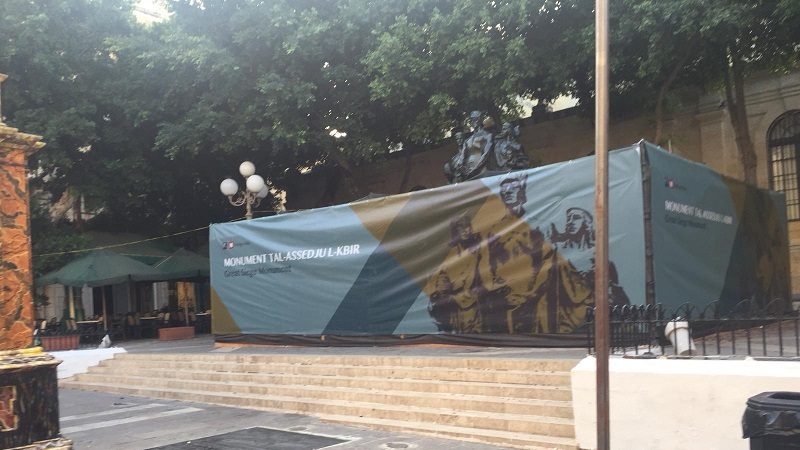“Isn’t it fascinating that Nazis always manage to adopt the word freedom?” says Henrik Vanger to journalist Mikael Blomkvist in The Girl With the Dragon Tattoo. Freedom and fascism cannot co-exist and yet the Nazi propaganda machine appropriated the term.
The Labour Party too has appropriated the word “freedom” while making efforts to stifle it. They have successfully convinced their supporters that freedom of speech is theirs to abuse. There is no inherent responsibility that comes with that freedom – so long, of course, as you are a person in authority or close to the Party.
So it is, for example, that you have Justice Minister Owen Bonnici telling an incredulous crowd in Friesland that he will not reprimand Valletta 2018 Chairman Jason Micallef for his comments about a murdered journalist because they “constitute freedom of speech”, while unashamedly preventing activists from placing flowers and candles on a monument.
Likewise a recipient of the Ġieħ ir-Repubblika award, Tony Zarb, may directly implicate the Party in Daphne Caruana Galizia’s assassination and celebrate her death while his own Party piled SLAPP lawsuits on the journalist in an effort to silence her.
And then there are recent comments made by the National Book Council Chairman and Labour devotee Mark Camilleri, who was also given a Gieħ ir-Repubblika award in Labour’s first honours list. He went as far as to suggest that a monument to Caruana Galizia would be a celebration of “fascist ideals”.
The laughable suggestion doesn’t hold up under scrutiny – indeed the evidence is neatly preserved on Running Commentary. Caruana Galizia explicitly supported gay rights and women’s reproductive rights; she championed feminism and the emancipation of women, and advocated for helping the poor souls dying in the Mediterranean. She hated the selling of Malta’s citizenship, and the destruction of its natural environment, and was a keen advocate for freedom of expression.
Hardly the resume of a fascist.
And yet, here is a government appointee – who was once himself an activist in the fight for freedom of expression – calling a murdered journalist a fascist while sitting silent as his government captures the media, the judiciary and the police while taking from citizens their money and their land.
Camilleri is likely well aware that one of the mainstays of fascism is the tendency to use language with scant regard for consistency, clarity or accuracy, primarily to retain power (I can only hope he has a better understanding then of the term ‘irony’).
This is where the first real defence of democracy begins. As Albert Camus pointed out in 1948, we must begin by “defining a certain number of keywords” — like fascism and democracy — “so that they will tomorrow be effective, we work for freedom”.
We must reassert the true meaning of these words at every instance so that others may not abuse of them.
Indeed as Stephen Prothero (a Boston University academic) wrote: “Ideas matter; thoughts have force. This is an obvious truth. It is why pastors preach, why professors profess, and why pundits do whatever they do. Yet whenever ideas do things we do not want them to do… we pretend that they are powerless”.
Do not let them render them powerless.












